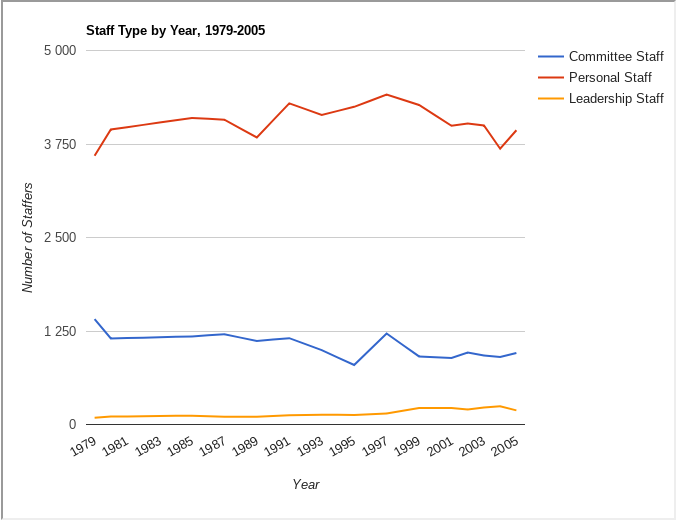One of the foundations of democracy is a legislature that functions well. The ability to assess whether a legislature is functioning properly depends on the public’s ability to see what it is doing. Observing what the U.S. Senate is doing, unfortunately, is a difficult task, and one that is unnecessarily hard. Have special interests become increasingly powerful in the Senate because the upper chamber has diminished its capacity to legislate? To evaluate this question, we gathered data about congressional staff numbers, pay, and retention from a number of difficult-to-access (and often non-public) sources.
While the U.S. Senate is often seen as the wiser and more seasoned counterpart to the House, we believe it is suffering from the same affliction that has robbed the lower chamber of some of its ability to engage in reasoned decision making, placing it at the mercy of special interests. Over the past thirty years, the Senate weakened its institutional knowledge base and diminished its capacity to understand current events through a dramatic reduction of one of its most valuable resources: experienced staff.
Despite the explosion of new issues senators must master and an ever-increasing population they must serve, the Senate has roughly the same total number of staff in 2005 as it had in 1979 — around 5,100. While much substantive work is performed in committee, committee staff has been cut by one-third. Similarly, the number of personal office staff in a policymaking role has declined by 14 percent. And staff pay has mostly stagnated between 1991 and 2005. It’s no wonder that a recent Congressional Management Foundation report found staff feeling as if they don’t have enough time to do everything they need to do, and they said resource constraints cause the quality of their work to suffer.
 Continue reading “Keeping Congress Competent: The Senate’s Brain Drain”
Continue reading “Keeping Congress Competent: The Senate’s Brain Drain”